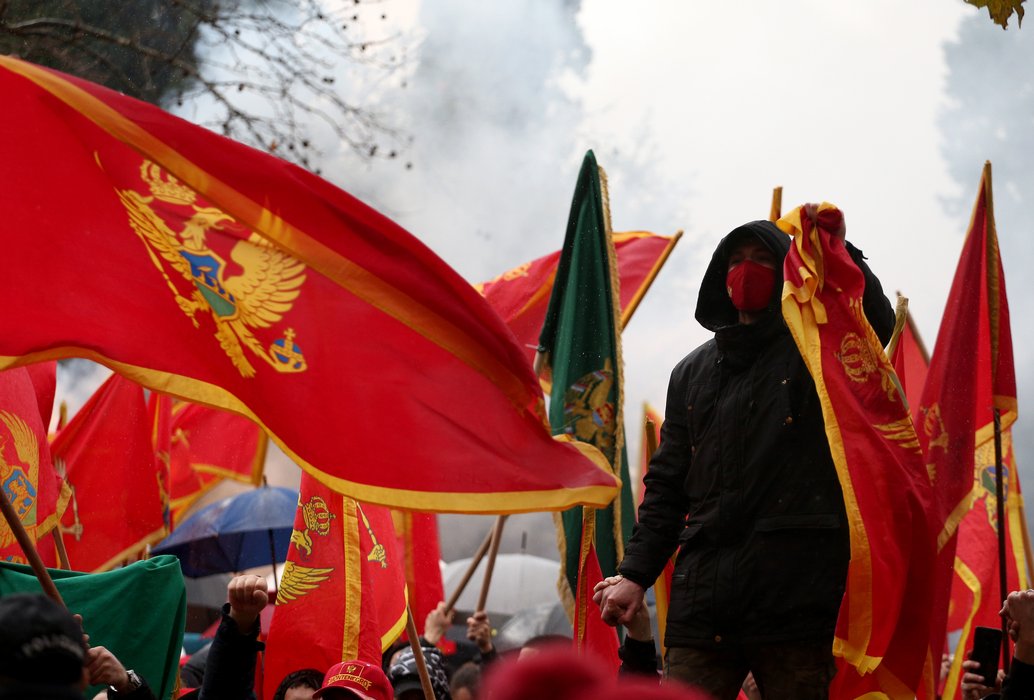
Peaceful Assembly
On 20th April 2021, activists from the pro-Serbian Democratic Front and Democratic Montenegro parties staged a protestin Pljevlja, calling on the government to reverse its decision to appoint Haris Djurdjevic, a Bosniak, as the head of the local police. Media reported that some protesters who gathered near the police station were singing nationalistic songs.
On 12th May 2021, police in Podgorica interrupted a peaceful gathering of several dozen people in support of the Palestinian people. According to the media and information received from the participants, the Police Directorate instructed the participants to disperse with the explanation that they had violated the COVID-19 measures in place. At the same time, a gathering of several thousand people in Nikšić was left uninterrupted, as police did not interfere in the Nikšić mass religious procession based on the same grounds. Civil society reacted, stating that the competent authorities must resolutely stop the selective behavior in relation to public gatherings.
“We call on the director of the Police Directorate to control and explain to the public yesterday's selective actions of the police, which interrupted the gathering of several citizens in Podgorica, while at the same time tolerating a mass gathering in the in Niksic; we also call on the Minister of Health to revise the general measures regarding public gatherings” (translated from Bosnian).
A Monitoring Report on the Freedom of Assembly in Montenegro also reported on the above case and citizens’ perception of police treatment being selective, which was also published by Institut Alternativa. The report highlights the legal gaps, in particular those related to regulation of spontaneous assemblies, which still produces legal uncertainties and should be better regulated. Positively, the same report shows that two thirds of the population in Montenegro believe that protests could lead lead towards societal changes in the country.
Expression
Fearing the growing ethnic divide in Montenegro and the increasing use of hate speech, the Council of Europe called on authorities to pay special attention to the prevention of hate speech in consultations on the new Media Law and ensure that the law addresses the problem of online hate speech.
According to the latest report on the World Press Freedom Index published by Reporters Without Borders (RSF) in the reporting period, Montenegro is up by one place in comparison to last year, ranking in 104th position out of 180 countries. RSF notes that
"the authorities continue to harass the media and professional journalists while the main cases of violence against journalists remain unpunished".
The new head of the Commission for Monitoring Violence against Media, Mihailo Jovovic, has called on Montenegro's authorities in the new government to show greater political will than their predecessors to resolve attacks on journalists and media.
In the reporting period, a sports journalist Nebojsa Sofranac was a target of nationalist insults during the reception of world boxing champion Petar Lijesevic. NGOs and media associations reacted to this attack against the RTCG journalist and demanded a response from the authorities.
Marking international World Press Freedom Day on 3rd May 2021, the Center for Civic Education has recalled many of the unresolved attacks on journalists over the years and noted the worrying working environment for journalists. On the same occasion, the US Ambassador to Montenegro also demanded that the government hold accountable those who target journalists.
Nezavisni mediji su ključni za očuvanje otpornosti demokratskog društva i igraju presudnu ulogu u informisanju javnosti. Sjedinjene Američke Države očekuju od Crne Gore da traže odgovornost za napade na novinare. #WorldPressFreedomDay #BeHeard https://t.co/v4s6k8b2X4
— US Embassy Podgorica (@USEmbassyMNE) May 3, 2021
In a separate development, following the sentencing of investigative journalist Jovo Martinović in March 2020 to one and a half years in prison over alleged drug trafficking and membership in a criminal organisation, Martinovic asked the prosecutor general Ivica Stanković to challenge the sentence’s legality, but Stanković declined. According to Reporters without Borders, this decision by the prosecutor general has “directly helped to perpetuate the baseless criminal proceedings against the investigative journalist”. Martinović is now preparing to appeal against Stanković’s decision, continuing with legal battles in which he has been embroiled for years.
Based on new research on the "Freedom of the media and security of journalists through the prism of media legislation in Montenegro", the Media Union of Montenegro (SMCG) has recommended that further changes to the media laws and the Criminal Code are needed in order to improve the status of journalists and media workers in Montenegro.